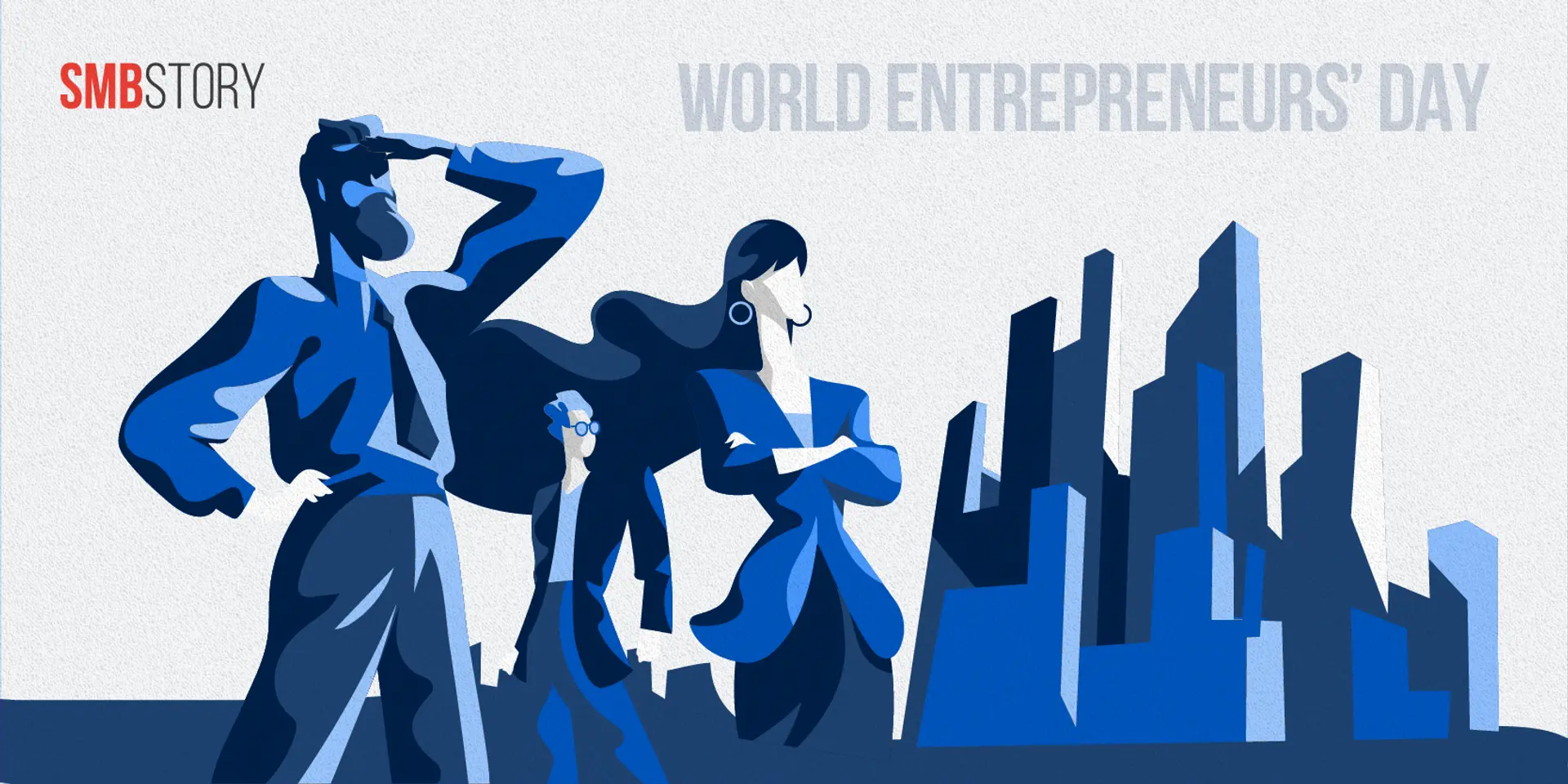World Entrepreneurs' Day: 5 lessons founders learned amid the COVID-19 pandemic
On World Entrepreneurs' Day, SMBStory spoke to industry experts and business coaches to relearn five major lessons the pandemic taught Indian entrepreneurs.
The year 2020 posed unprecedented challenges to businesses across sectors. The COVID-19 pandemic hit the growth trajectory and aspirations of entrepreneurs working to build a successful business. This was especially true for small and medium businesses and MSMEs that did not have the staying power and resources to stay afloat amid the glut of problems.
According to a dun & bradstreet report in April 2021, more than 82 percent of businesses saw a negative impact, with 70 percent of them stating it would take them almost a year to achieve a pre-COVID-19 level of demand.
Now that we are slowly emerging from the crisis, it is essential for entrepreneurs to keep the learnings from the pandemic close to their hearts so that they are better prepared for any such scenario.
On the occasion of World Entrepreneur Day, SMBStory spoke to industry experts and business coaches to understand the five major lessons Indian entrepreneurs learned amid the COVID-19 pandemic and how they can use them to safeguard themselves in the future.
Go digital
The pandemic-induced lockdowns accelerated the pace of digital transformation in India. Adopting digital means seemed challenging to small businesses and MSMEs in the early days of the lockdown, but these businesses were the ones that survived – and thrived – after upskilling.
A study by Google-KPMG showed that digitally-empowered SMEs have about twice the revenue growth projections as compared to offline SMEs.
Nikhil Arora, Vice President and Managing Director, GoDaddy India, told SMBStory that having an online presence impacted both - entrepreneurs' prospects and growth expectations for the future. It enabled businesses to reach a wider audience, nationally and internationally, in a cost-effective way, building great brand visibility and driving increased engagement.
“The last one-and-half years have been challenging for everyone, especially for small business owners in India. We observed that businesses across levels, including MSMEs, have realised the importance of a digital presence and are increasingly pivoting online.”
GoDaddy, an American publicly traded internet domain registrar and web hosting company, helps entrepreneurs go online and build their presence. It has over one million customers and, going forward, Nikhil says the company aims to reach out to the next set of 200 million internet users expected to come from Tier II and III India.
Learn to adapt
Vivek Bindra, Founder of Bada Business, believes that the biggest lesson taught by the pandemic has been the accelerated transition towards ‘adaptism’.
“Entrepreneurs that adapt will be the ones that survive, not only through the current times of uncertainty but for any future crises as well,” he said.
Citing an example, Vivek said a handicraft seller based out of a remote part of the country will today find it convenient to sign up for an app-based, pocket-friendly online course in his native language, to learn quick hacks to grow his business. He would not want to move to an urban location to pursue a full-time MBA degree for this purpose. Thus, businesses should adapt to the trends in the business ecosystem to stay relevant.
Adaptability also includes being innovative with market-first propositions to ensure a competitive edge, he added.
Be asset-light
Businesses with less invested capital survive tough times faster. An asset-light business focuses more on business operations, less on building assets.
"The most important lesson from the pandemic is to build a business that is light on assets. If the business is asset-light, promoters have lesser liability and automatically gain a much longer runway to feed their fixed costs. As an entrepreneur, one should remember that in the battle for survival, the last man standing wins,” said Amit Kumar, CEO and Co-founder of MSMEx, an education and advisory platform for MSMEs, startups, and small businesses.
“Tough times seldom come with a prior warning,” said Amit, adding that an appropriate level of governance should be part of the business so it can attract non-conventional working capital, debt capital, or equity capital whenever needed.
Reduce dependency on loans
When COVID-19 wreaked havoc in India, the government, in a move to support MSMEs, introduced various loan schemes to help them survive the business. However, industry experts believe that there should be lesser dependency on loans as repayment burdens entrepreneurs.
In an interaction with SMBStory earlier this year, Mukesh Mohan Gupta, President of Chamber of Indian MSMEs, said loans only provide temporary relief to MSMEs and may, in fact, add to their existing burden as many MSMEs, who had availed loans so far, were struggling to repay them.
“The loans offered last year were for a period of three years with interest. For example, if an MSME took a Rs 5 crore loan with 9 percent interest, its annual repayment for principal would be Rs 1.67 crore with Rs 49-Rs 50 lakh interest. Now, when businesses have shut again amidst the second wave and with the threat of a looming COVID-19 third wave, capacity hasn’t built up. So, how will these businesses pay these loans back?” he asked.
This makes it imperative for entrepreneurs to consider loans to scale, not survive.
Be nimble in transformation
Amit said business owners who survived in the last 18 months were “nimble in transformation”.
“We saw restaurant owners starting cloud kitchens, school vans starting ambulance services, garment factories turning to the production of masks and PPE kits, and cosmetic manufacturers making and selling sanitisers. These business owners showed nimbleness as they networked and arranged enough resources to transform their businesses overnight,” he said.
Being agile is one of the most important and biggest lessons entrepreneurs have learned to keep their heads above water in trying times.
YourStory’s flagship startup-tech and leadership conference will return virtually for its 13th edition on October 25-30, 2021. Sign up for updates on TechSparks or to express your interest in partnerships and speaker opportunities here.
For more on TechSparks 2021, click here.
Applications are now open for Tech30 2021, a list of 30 most promising tech startups from India. Apply or nominate an early-stage startup to become a Tech30 2021 startup here.
Edited by Teja Lele








